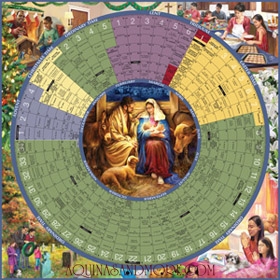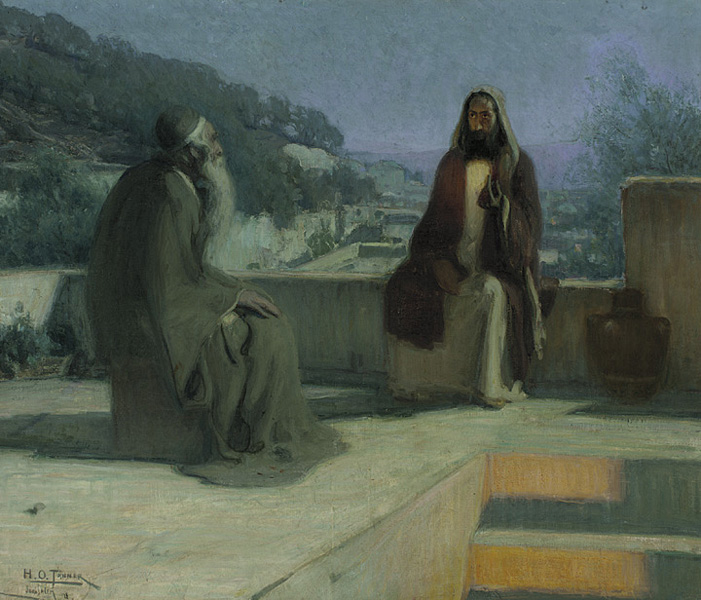Jeremiah 33:14-16
Psalm 25
1 Thes 3:12-4:2
Luke 21:25-28, 34-36
One of the things I love about being Catholic is the rhythm of the liturgical calendar, and the way that it marks human life in tune with the seasons of the year as they relate to the story of salvation history. And even though I know (intellectually) that Lent and Easter are the pinnacle of that story, there is a child-like nostalgia that accompanies the opening of the Liturgical year with the season of Advent.
At the same time, one of the things I consistently hear – and that I experience myself – is that Advent is also a stressful time of year. The excitement of waiting in hope for Jesus’ birth (and for the presents under the tree on Christmas morning!) has a shadow side that manifests itself in a constant rush of preparation for the big day – for professors there are finals and grading, there is a constant stream of parties, the pressure to buy just the right gift for each person on the list, preparations for travel, for large meals and gatherings, not to mention the fact that many people struggle with added depression and anxiety that is only heightened by the pressure to be merry along with the advertisements and commercials.
The readings for this Sunday capture the mixture of joyful hope and anxiety that characterizes the modern experience of Advent quite well. The first reading from the prophet Jeremiah – written during the period of the Israelites’ exile into Babylon – urges the people to remain hopeful that God’s promise of a Messiah (“a just shoot” of David), even amidst the most traumatic event of their history. And Luke’s eschatological vision – especially its more apocalyptic moments – can also lend itself to anxiety. Add onto it the pressure to “be good” (as Paul exhorts in 1 Thessalonians) and the joy of Advent might quickly fade.
But the antidote to this anxiety can be found in these readings as well. I want to focus in particular on the following excerpt from Luke:
Beware that your hearts do not become drowsy
from carousing and drunkenness
and the anxieties of daily life
Notice that Jesus does not tell his listeners to avoid the parties and the anxieties. The irony of trying to control life in this way – and I know this from first-hand experience – is that the attempt to control only increases the anxiety. The antidote is then to not let our hearts become drowsy amidst the busy-ness of life. How do we do this? I believe that can only come from accepting Advent in all of its fullness – the joy and the anxiety – but moving through it with hearts slowed down enough to be present and to be open to all of what life brings. Understood in this way, the eschatological and apocalyptic prophecies (in Jeremiah and Luke) become what they are intended to be – a source of hope and trust that God is in control of the final outcome of history – rather than one more thing to worry about.
My practice this Advent, therefore, is to remain present and open to all that comes with this busy season, to experience it in its fullness, while trusting that even when things become overwhelming I am not in control of the final outcome. My hope is that then I can kick back with my egg nog and my family and appreciate the child-like wonder of this season.


